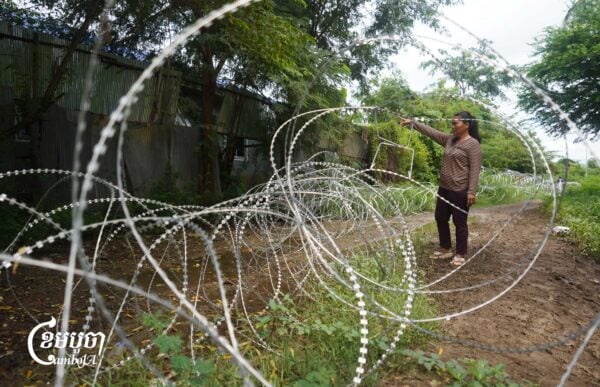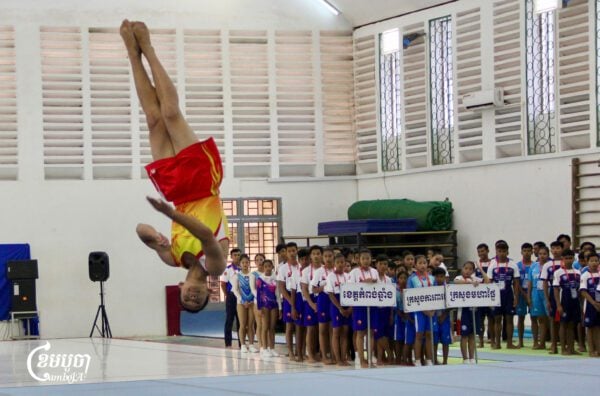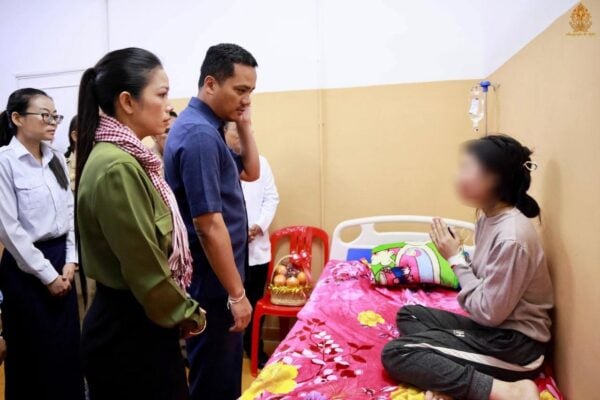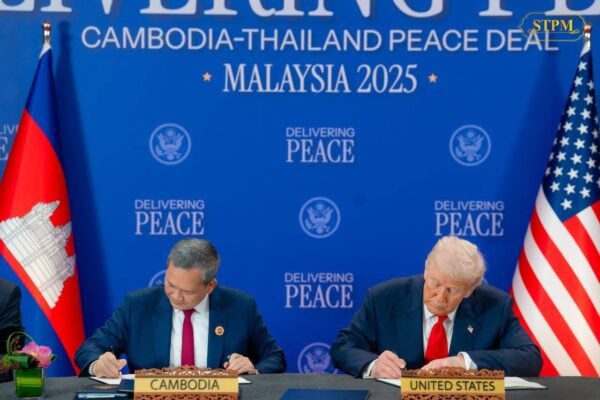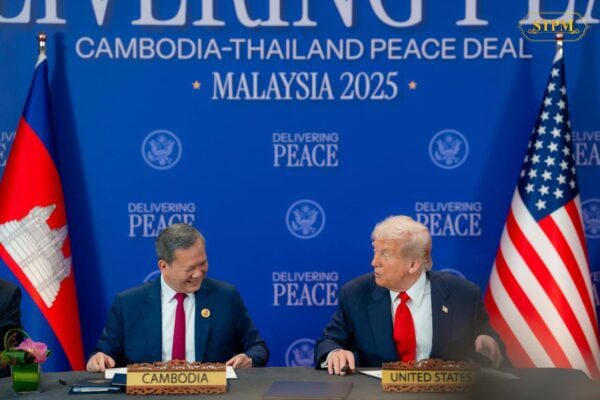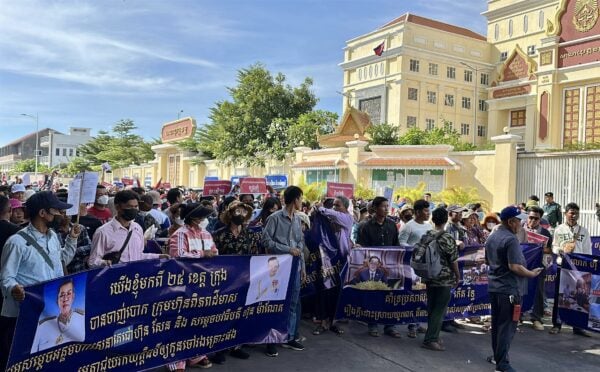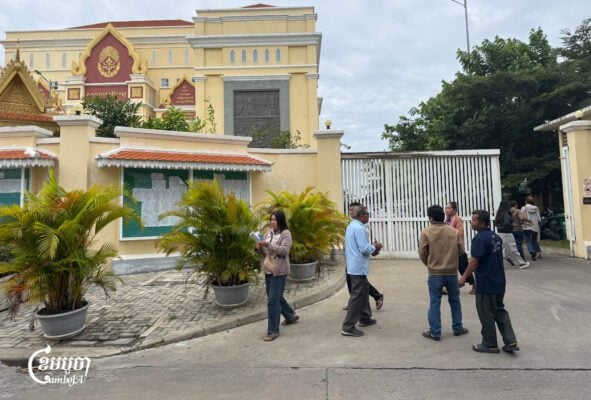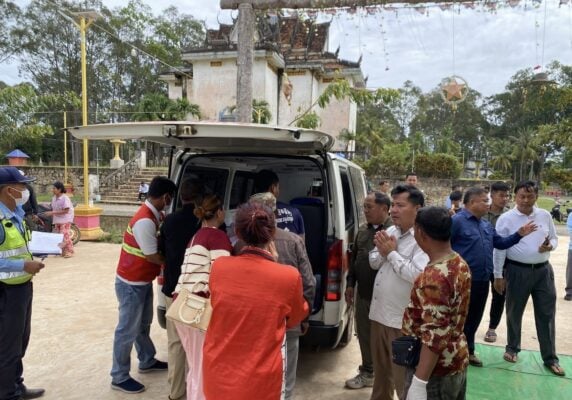Listen to the audio version of this article (generated by AI).
South Korea’s Foreign Affairs Minister, Cho Hyun, who is visiting Cambodia from November 9 to 11, aims to deepen bilateral ties and establish a joint task force to combat online scam-related crimes.
According to a post on Prime Minister Hun Manet’s official Facebook page on November 10, the two leaders held a discussion to strengthen bilateral cooperation. Cho also met with Interior Minister Sar Sokha.
The Ministry of Information on November 10 stated that Chhay Sinarith, Director of the Secretariat of the Special Committee to Crack Down on Online Scams, and Yoo Jae-Seong, Acting Commissioner-General of the Korean National Police Agency met separately to discuss joint efforts to combat cybercrime.
During the meeting, Sinarith told Yoo that the government is committed to fighting cybercrime, stressing the importance of expanding investigations to identify the masterminds and networks behind such operations, including their financial systems. He noted that achieving this requires “close, trustworthy, and effective cooperation with all partners”.
He also welcomed the initiative to sign a memorandum of understanding (MoU) to establish a “Cambodia-Korea Joint Task Force” to combat crimes involving Korean citizens in Cambodia.
The action follows an agreement between South Korean President Lee Jae-myung and Hun Manet on the sidelines of the ASEAN Summit in Kuala Lumpur last month to establish a Cambodia–Korea Joint Task Force to investigate and stop online scams involving South Koreans who operate within Cambodia.
The task force proposal was promptly announced after the death of a 22-year-old South Korean student in Kampot province, allegedly tortured to death by a Chinese criminal group.
Cambodia’s Information Ministry said acting commissioner general Yoo thanked the Cambodian authorities for their timely efforts in implementing the agreements made by their leaders, which led to the MoU on the formation of the Cambodia-Korea Joint Working Group.
“This joint task force will become a symbol of solidarity and cooperation between Cambodia and Korea, and also serves as a stern warning to criminal groups,” he said.
According to South Korea’s Foreign Ministry spokesperson Lee Jae-woong on November 6, the task force would significantly help Koreans resolve issues regarding scam crimes in Cambodia.
Meanwhile, in his post, Hun Manet said both nations agreed to deepen cooperation in economy, investment, trade, national defense, security, industry, and tourism, and that Cambodia would ensure the safety and well-being of Korean citizens living and working in the country.
The South Korean government estimated that about 1,000 of its citizens are connected to organized scam activities in Cambodia. Many of these operations are believed to be based in compounds managed by Chinese networks, which are part of a broader regional criminal system that has reportedly trafficked around 150,000 people from multiple countries.
The South Korean government received 386 reports of its nationals being abducted or detained in Cambodia, according to Minister Cho, citing figures from their records in September.
On October 18, Cambodian authorities deported 64 South Koreans accused of involvement in online scam operations. The repatriation followed the dispatch of a South Korean response team to assist its citizens caught in scam compounds. Of those repatriated, 59 were detained following Cambodian police crackdowns, while others were rescued after seeking help.
Nathan Paul Southern, operations director of the EyeWitness Project, told CamboJA News that while joint law enforcement between Cambodia and South Korea is vital in tackling transnational scam networks, current efforts appear “more symbolic than strategic”.
He opined that recent crackdowns have focused more on short-term public image than on dismantling the broader criminal ecosystem.
Although Korean-focused scam operations in Cambodia may decline and compound raids continue, it “remains unlikely that any senior figures will be arrested or that the overall scamming business model will be disrupted”.
“Joint international law enforcement cooperation is essential to tackling transnational scam networks, but what we are witnessing so far is political theatre rather than a sustained strategy,” he said. “This isn’t disruption. It’s displacement with good PR.”
Southern believed South Korean police would be unable to conduct investigations or make arrests in Cambodia without the cooperation — and ultimately the approval — of Cambodian authorities.
“That collaboration may make Korean-linked networks pause or relocate to more accommodating jurisdictions for a time, but no senior figures or entrenched operations will be truly dismantled unless Cambodian authorities want this to happen,” he added.



